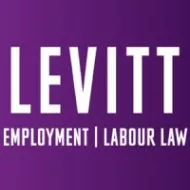- within International Law topic(s)
As gratifying as it may momentarily seem, throwing mud on one's opponent in the hopes some of it will stick rarely is a successful strategy. There is no substitute for a meticulous defence.
When Marc Levy became chief executive of Norsemont Mining in 2004, it was an inactive Vancouver-based mining and development company. Hoping to revive the business, Levy hired James Kelly, a 55-year-old experienced broker, as vice-president of finance and director of communications to assist in raising capital.
Within short order, Kelly and Levy were on a collision course. Kelly believed that, to build investor confidence and attract capital, it was critical to cultivate personal relationships with brokers and provide complete disclosure about the business. Levy, however, believed aggressively selling stock was the route to driving up the share price.
To carry out his strategy, Levy hired Aly Mawji as a director. Although the 25-year-old had limited experience in the industry, he came with a list of thousands of names of potential investors. Norsemont also hired 24-year-old Dennis Menadic to make high volume cold calls to those potential investors.
Kelly made no secret of his concern Mawji was teaching Menadic how to inappropriately manipulate Norsemont's stock. Indifferent to Kelly's advice that the behaviour of these two ran afoul of provincial securities law, Levy instead directed Menadic to spy on Kelly and report back his activities. Not surprisingly, Menadic reinforced Levy's belief Kelly was unproductive.
When tensions between Mawji, Kelly and Levy reached a boiling point, Kelly was summoned to a three-hour meeting with Levy and Mawji, where he was accused of throwing up roadblocks for the directors' plans. This session was followed by an email from Mawji ordering Kelly to deliver up a spreadsheet of the brokers he was contacting and identifying his prospects on a daily basis. Kelly was now to report to Mawji instead of Levy.
Kelly responded with a lengthy letter, in which he referred to privacy legislation as a legal impediment to the collection and sharing of information on potential clients. Asserting the company owed him money under his contract, and he suggested he would get a lawyer and sue in Small Claims Court. The threat of litigation triggered a swift response. Levy fired him.
Norsemont responded to Kelly's wrongful dismissal action with numerous defences, insubordination, incompetence, misrepresentation of credentials on hiring, and public criticisms of management. One month of wages was withheld. Levy threatened Kelly with financial ruin if he continued with his lawsuit.
But Kelly persist and after seven years and a 33-day trial, was vindicated. Madame Justice Lauri Ann Fenlon of the B.C. Supreme Court found no evidence to support these allegations. Outraged by Norsemont's behaviour in maintaining its unfounded allegations and in attempting to intimidate Kelly, the judge awarded a record $100,000 in punitive damages and his legal costs, in addition to the relatively nominal value of his contract, amounting to 30 days salary.
This decision should give employers pause on how they manage terminations and assert cause. The following measures should be taken to minimize such risks:
Identify the motive Often an employee who does not fit the corporate culture becomes a lightning rod for the organization's failings. But poor fit is not just cause.
Assess the evidence Either you have evidence of wrongdoing or you do not. Avoid the temptation of levelling allegations based on suspicion or dislike rather than hard evidence.
Constantly re-evaluate What initially appears to be a strong defence may not hold up under scrutiny. At the examinations for discovery, Levy could not point to any evidence of public criticisms of Norsemont yet maintained that allegation right through to trial. Had the allegations been withdrawn, the outcome would likely have been different.
Avoid spiteful behaviour Following his dismissal, Norsemont withheld Kelly's final month's salary in an effort to obtain a release. In addition, when Kelly was struggling for a living following his dismissal, Levy threatened to ensure that Kelly's appearances on a radio program would not be repeated. These post termination behaviours were cited by the judge as further grounds supporting the punitive damages award.
Do the math Vengeance comes at a price. Had Norsemont simply terminated Kelly without cause, based on the terms of the court, paid out his accrued salary and 30 days notice, it could have avoided an expensive lawsuit and the accompanying notoriety.
The content of this article is intended to provide a general guide to the subject matter. Specialist advice should be sought about your specific circumstances.


